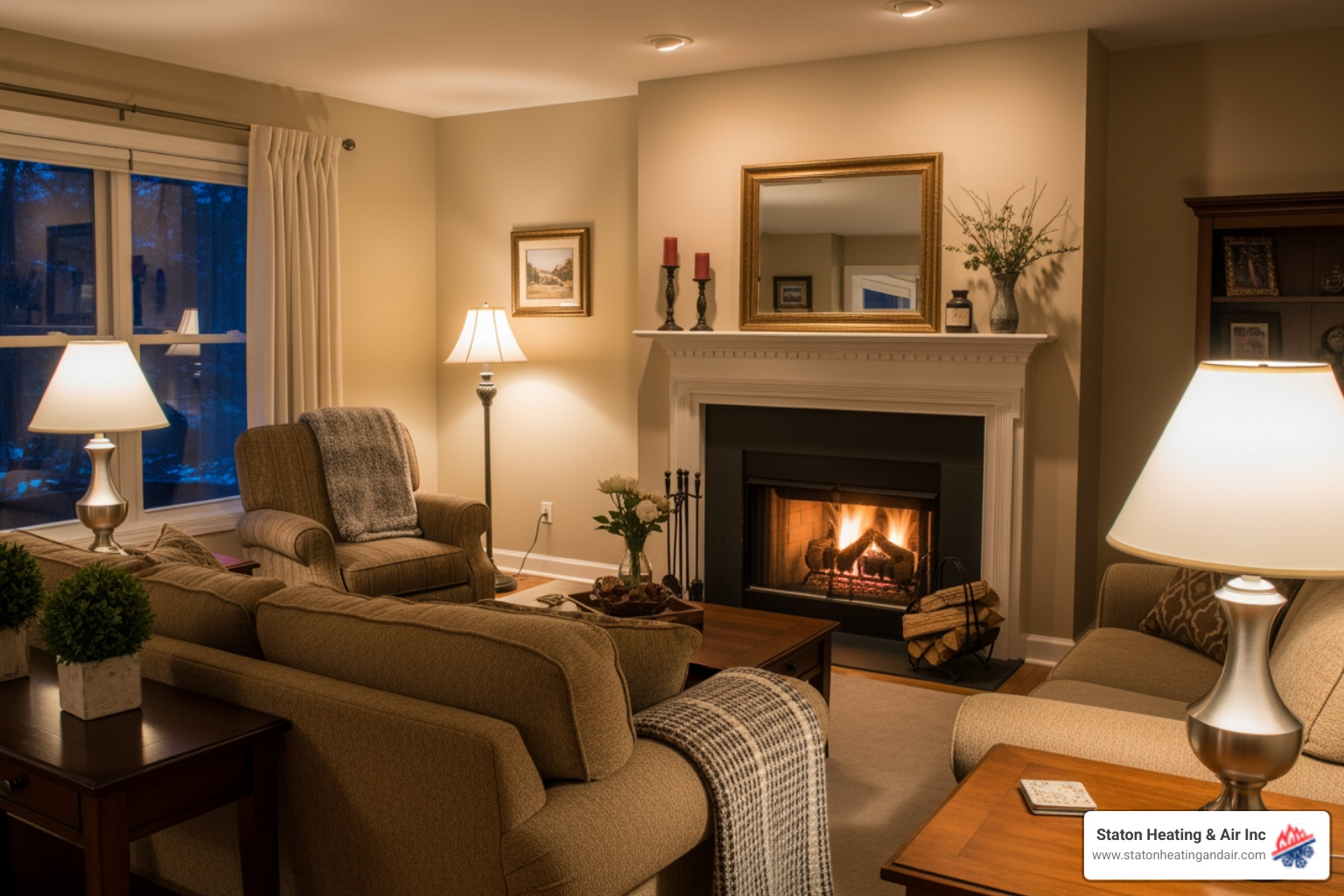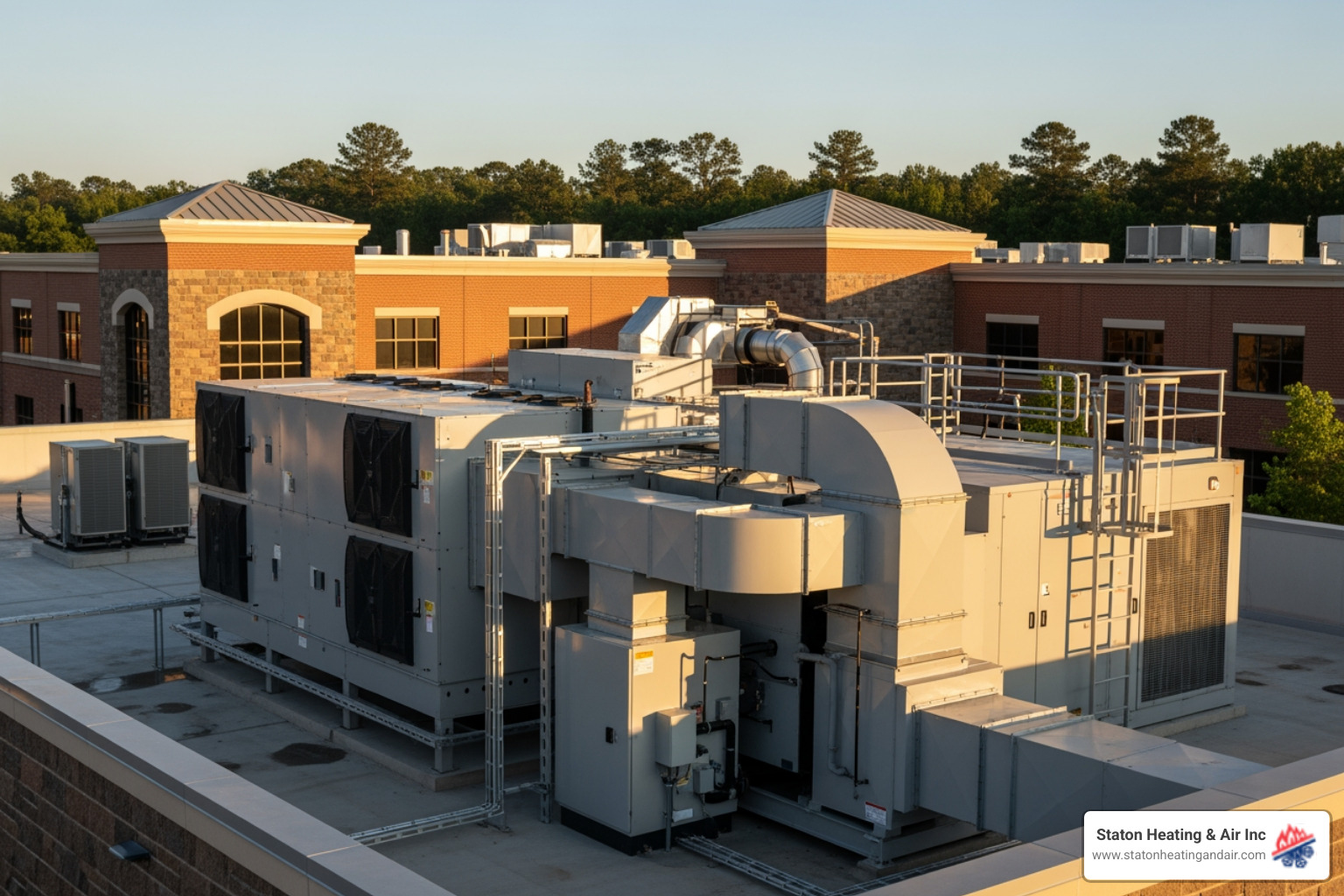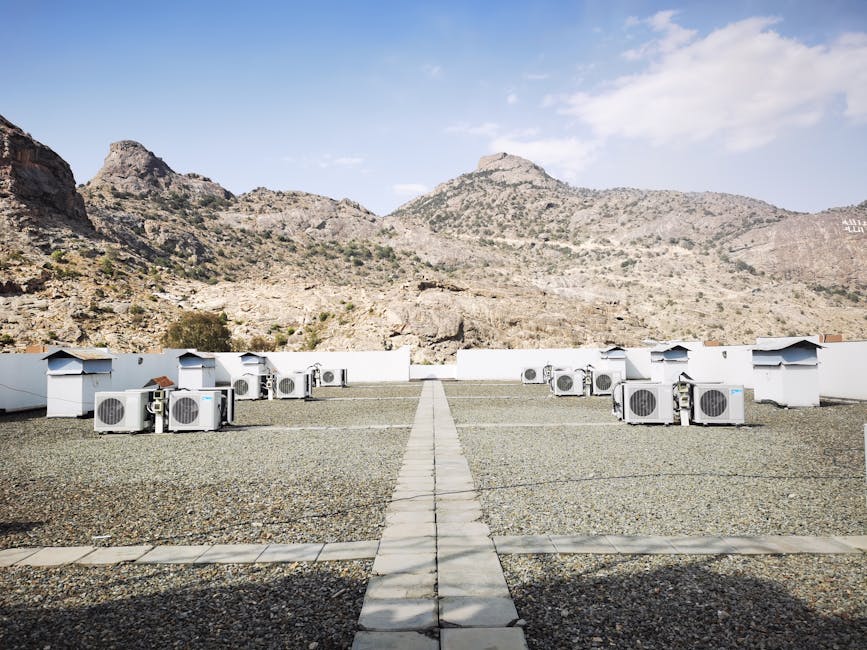Don't Freeze! Your Guide to Finding Furnace Repair Nearby
Don't Let the Cold Win: Understanding Furnace Repair Near You
When your furnace breaks down, you need fast and reliable furnace repair near you to restore warmth and comfort to your home. A heating emergency can happen at any time, leaving your family in the cold.
To find immediate help:
- Search for 24/7 Emergency Service: Many local HVAC companies offer round-the-clock emergency support.
- Check Online Reviews: See what other homeowners say about a company's response times and service quality.
- Look for Licensed Technicians: Ensure any company you consider employs certified and experienced professionals.
A malfunctioning furnace is both an inconvenience and a potential safety hazard. Knowing the warning signs, what to check yourself, and how to find a trustworthy repair company is crucial.
This guide covers common furnace problems, simple troubleshooting steps, and how to choose the best local repair service, preparing you for any heating emergency.
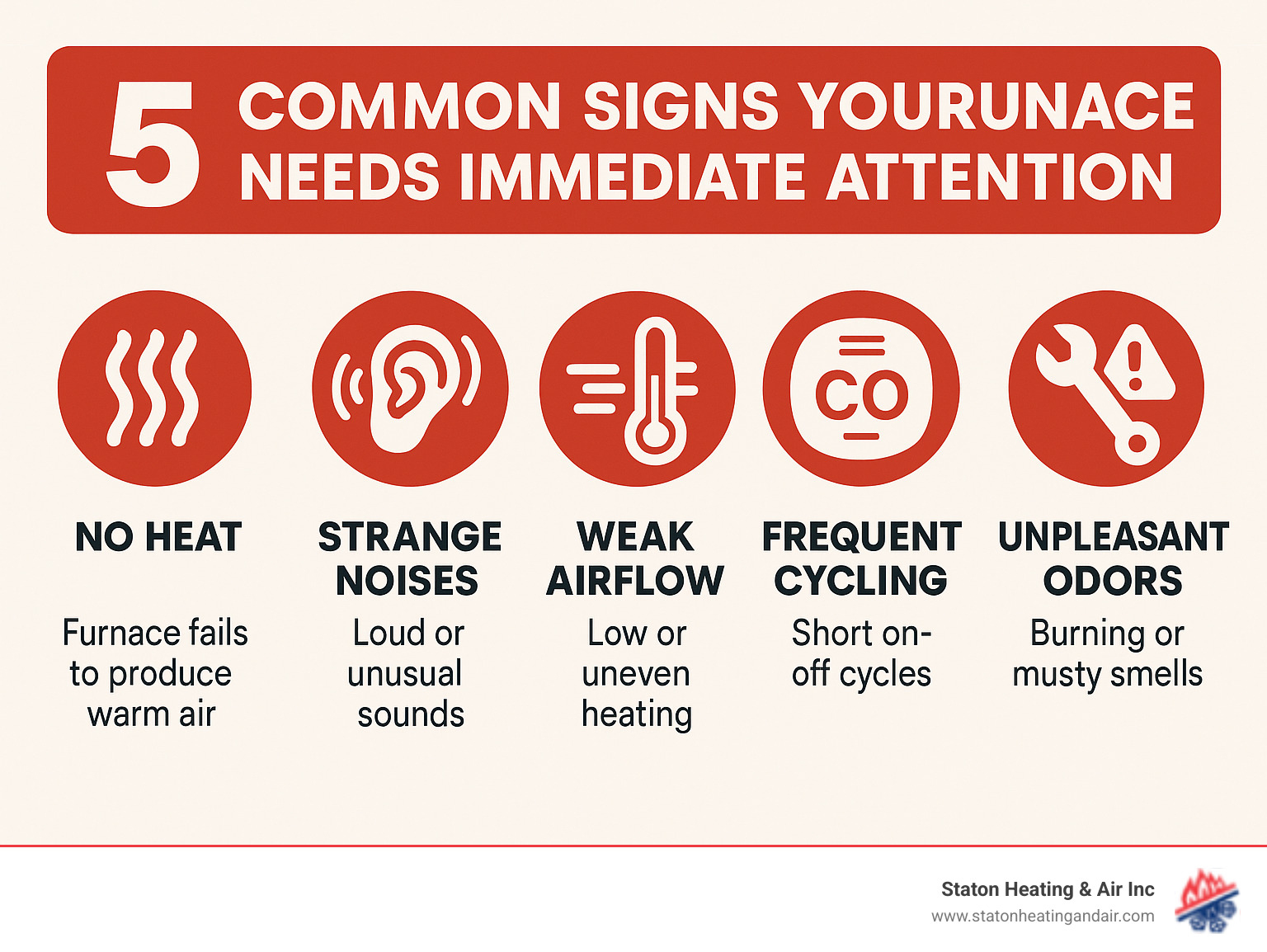
Warning Signs: How to Tell Your Furnace Needs Repair
Ignoring the warning signs from your furnace can lead to bigger problems and even safety risks. Knowing what to look and listen for will help you find reliable furnace repair near you before a small issue becomes an emergency.
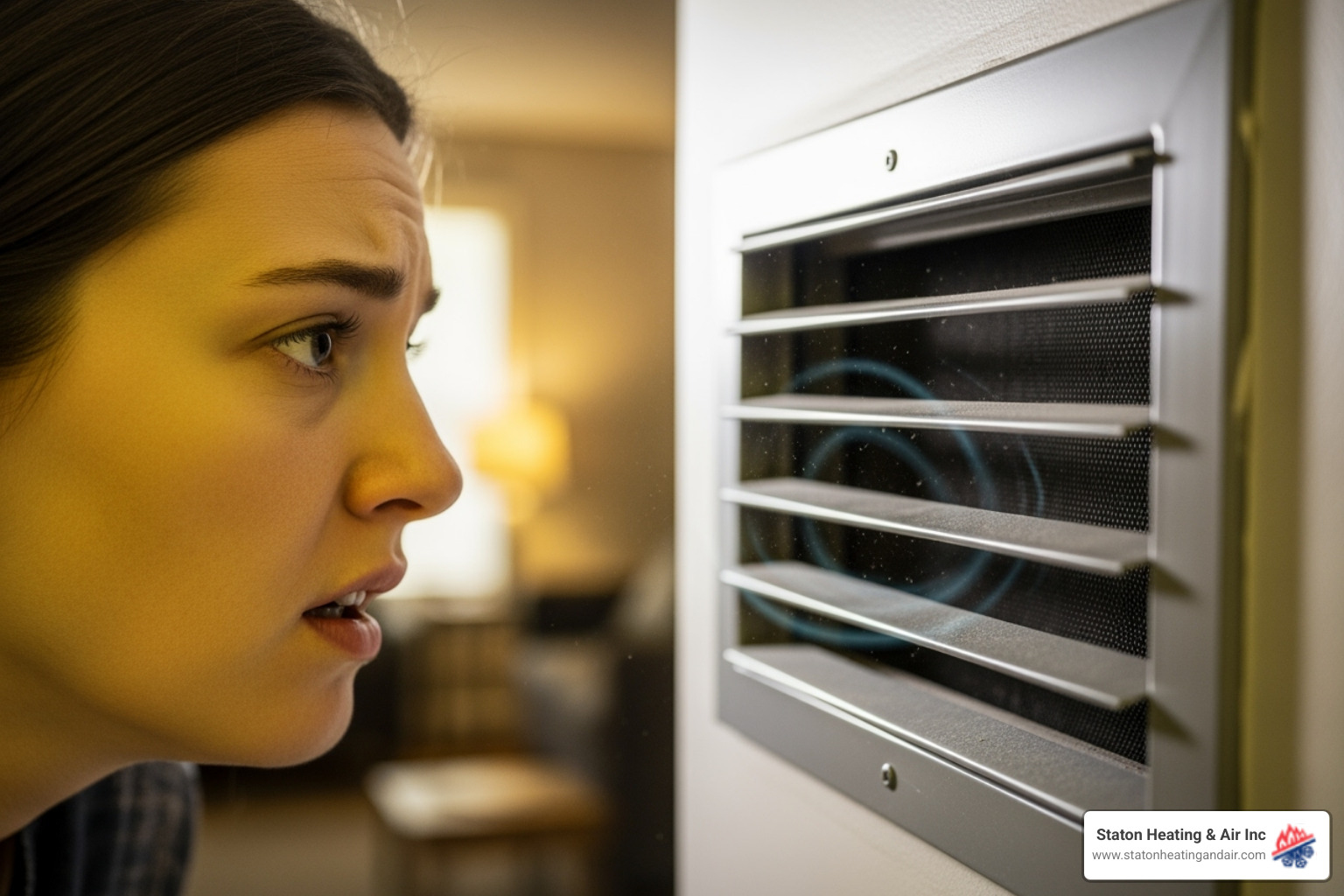
Here are some common signs that your furnace might be crying out for help:
If you hear strange noises like bangs, squeals, or grinding, it's a clear sign something is wrong. Squealing can indicate a worn fan belt, while banging could mean an ignition problem. Don't ignore these sounds.
If air from your vents feels weak, you have weak airflow. This could be due to a clogged filter, a faulty blower motor, or ductwork issues, all of which prevent your home from heating efficiently.
Uneven heating that creates cold spots suggests your furnace is struggling to distribute air. This can be caused by leaky ducts, blockages, or an improperly sized furnace.
A sudden spike in your utility bills without a change in usage is a red flag. A struggling furnace consumes more energy to heat your home, increasing your costs.
A gas furnace pilot light should be a steady blue. A flickering yellow pilot light indicates incomplete combustion, which can produce deadly carbon monoxide. This requires immediate professional attention for furnace repair near you.
An increase in dust, dry air, or static electricity can signal poor air quality caused by your furnace. A malfunctioning unit can circulate more allergens and pollutants throughout your home.
Short cycling is when your furnace turns on and off frequently. This common issue, caused by a clogged filter, faulty thermostat, or oversized unit, puts excessive wear on your system and shortens its lifespan.
Never ignore water pooling around your furnace. It can indicate a clogged condensate line or a leak, leading to rust, mold, and other property damage.
The Critical Importance of Furnace Safety
While comfort is key, safety is the top priority. Some warning signs require immediate attention.
Carbon monoxide (CO) is an odorless, colorless, and highly toxic gas produced by malfunctioning furnaces. Symptoms of carbon monoxide poisoning include headaches, dizziness, nausea, and confusion, and can be fatal. If you suspect CO exposure, get to fresh air immediately and seek medical help.
A rotten egg or sulfur smell indicates a natural gas leak. Utility companies add this odor for safety. This is an emergency that requires immediate action.
Working CO detectors are essential in any home with a fuel-burning furnace. They are your first line of defense against this invisible gas and are crucial for your family's safety.
When to evacuate: If you smell gas, hear hissing, or your CO alarm sounds, evacuate immediately. Don't use light switches or phones. Once safely outside, call your gas company and then a professional for emergency furnace repair near you. Do not re-enter until professionals say it's safe.
Before You Call: A Quick DIY Troubleshooting Checklist
Before calling for furnace repair near you, try these simple troubleshooting steps. A quick check can often solve minor issues and save you a service call.
Check your thermostat settings. Make sure your thermostat is set to "Heat" and the temperature is set higher than the current room temperature. Also, ensure the fan is set to "Auto," not "On," so it only runs when the furnace is heating.
Replace your thermostat batteries. If your thermostat has a blank or flickering screen, it may just need new batteries. This simple fix can often restore power and get your system working again.
Inspect your air filter. A dirty air filter restricts airflow, which can cause your furnace to overheat and shut down. Check your filter monthly during the heating season. If you can't see light through it, it's time to replace it.
Check your circuit breaker. Go to your electrical panel and find the breaker for your furnace (often labeled "Furnace" or "HVAC"). If it has tripped, flip it completely to "Off" and then back to "On" to reset it.
Ensure the furnace switch is on. Most furnaces have a power switch on or near the unit that looks like a standard light switch. Make sure it hasn't been accidentally turned off.
Unblock your vents. Walk through your home and ensure all supply and return air vents are open and clear of obstructions like furniture, rugs, or curtains to allow for proper airflow.
Secure the panel door. For safety, furnaces will not operate if the access panel or door is not securely closed. Check to make sure all panels are firmly in place.
If these steps don't resolve the issue, the problem is likely more complex and requires professional diagnosis. It's time to call for expert furnace repair near you to ensure a safe and effective solution.
The Big Decision: Should You Repair or Replace Your Furnace?
When your furnace fails, you face a major decision: repair or replace? The right choice depends on several factors, including age, cost, and efficiency.
Here’s how to think through that big decision:
First, consider the furnace age. A furnace under 10-15 years old is usually worth repairing. For units over 15 years old, especially those needing frequent repairs, replacement is often the smarter long-term investment.
Next, think about the repair frequency. An isolated problem typically warrants a repair. However, if you're calling for service regularly, constant repairs are a sign that your furnace is failing and replacement should be considered.
Then, there's the cost of repair vs. a new unit. If a repair costs 50% or more than a new unit, that money is better invested in a replacement. For minor fixes, repair is more budget-friendly.
Let's not forget energy efficiency (AFUE). A repair won't improve your furnace's efficiency. Upgrading to a new, high-efficiency model can lead to significant future savings on utility bills, helping the investment pay for itself over time.
Finally, consider the warranty and reliability. A new furnace comes with a comprehensive manufacturer's warranty, offering long-term reliability and peace of mind. Repairs typically have much shorter warranties. New units also offer modern technology like quieter operation and smart thermostat compatibility.
Understanding the Costs of a Furnace Repair Near You
The cost of furnace repair near you can vary significantly depending on the issue. Average repair costs range from minor adjustments to major part replacements, like a blower motor or heat exchanger.
The final bill typically includes an hourly rate for labor and the cost of any part replacement. Emergency service outside of business hours usually incurs higher rates.
Several factors affect the price you'll pay:
- Type of Furnace: The kind of furnace you have (gas, electric, oil, or propane) can influence the cost.
- Complexity of the Repair: A simple fix is less expensive than a complex issue requiring extensive diagnostic work.
- Time of Service: Repairs needed at night or on a holiday typically come with a higher service fee.
- Technician Expertise: Highly certified technicians, like the NATE-certified pros at Staton Heating & Air Inc., may have higher rates, but their expertise often leads to a faster, more reliable repair, saving you money in the long run.
If your furnace is over 15 years old, breaks down frequently, or the repair is a large fraction of the replacement cost, a new high-efficiency model is often the most sensible financial decision.
How to Choose the Best Company for Furnace Repair Near You
When you need furnace repair near you, choosing the right company is crucial for quality, expertise, and peace of mind. As a company serving our community since 1972, we know what homeowners value.
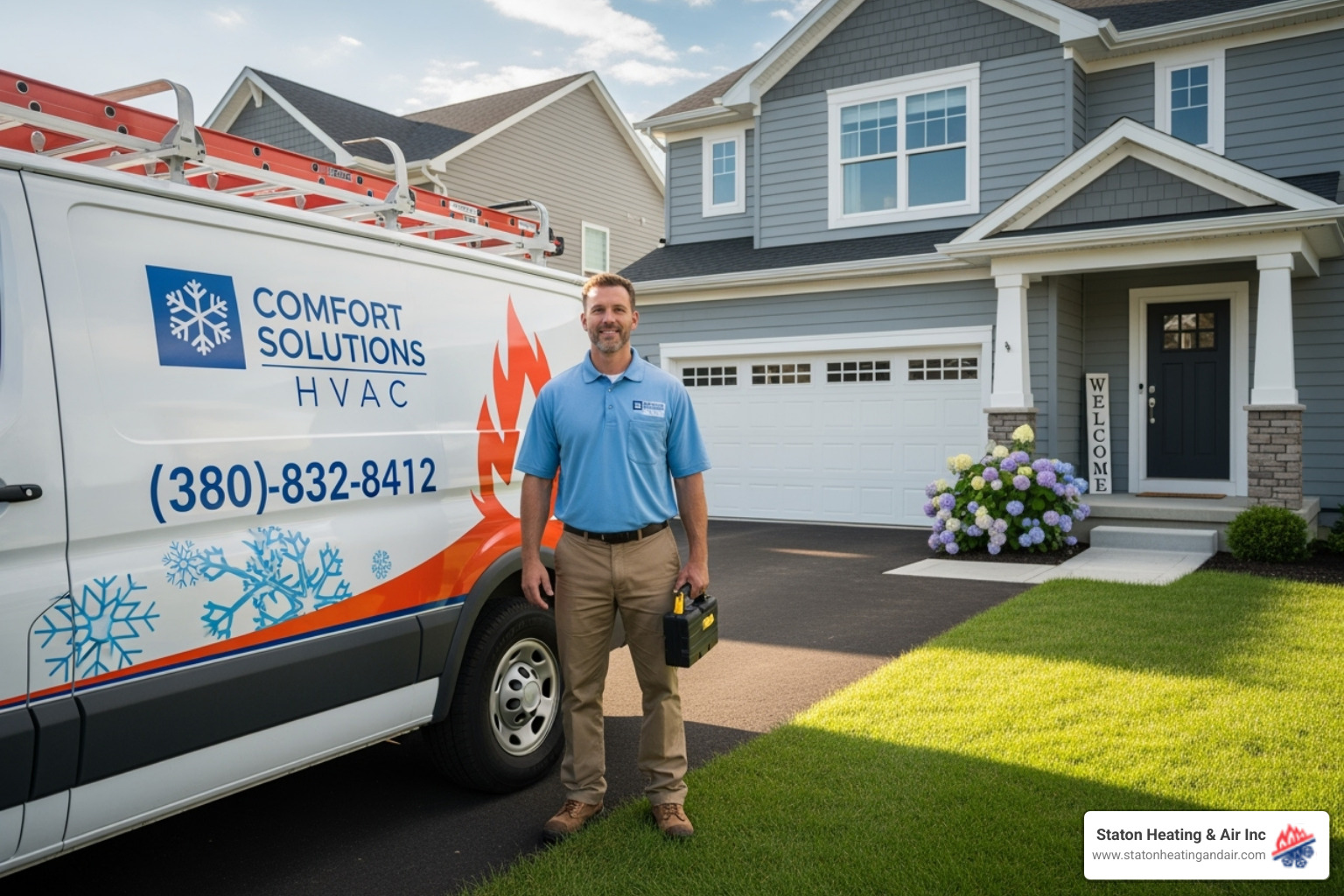
Here’s what to look for when choosing your HVAC partner:
NATE Certification (North American Technician Excellence) is the industry's leading certification. NATE-certified technicians have passed rigorous exams, ensuring they are experts in the latest HVAC technology and can perform repairs correctly the first time. You can Find a NATE-certified technician in your area through their website.
Always choose a company that is fully licensed and insured. This protects you, ensuring the company meets state and local regulations and that you're covered in case of accidental damage during the repair. A reputable company will provide proof upon request.
Check the company's local reputation and online reviews. Consistent positive feedback on professionalism, responsiveness, and problem-solving skills is a strong indicator of a company that delivers on its promises.
Consider their years of experience. A company with decades of experience demonstrates stability and deep expertise. A long history means they've handled a wide range of furnace issues and are prepared for any challenge.
Furnace breakdowns don't stick to a 9-to-5 schedule, so 24/7 emergency service is essential. A reliable company will be available to help you day or night, on weekends, and during holidays.
Look for a company that offers upfront pricing and written estimates. This transparency builds trust and ensures you know the full cost of parts and labor before work begins, with no hidden fees.
Strong guarantees on parts and labor show a company's confidence in its work. A satisfaction guarantee provides peace of mind that they will stand by their service.
By keeping these factors in mind, you can make an informed decision when choosing the best company for furnace repair near you. Selecting the right partner ensures your home stays warm and comfortable all winter.
Frequently Asked Questions about Furnace Care
Understanding furnace care is key to keeping your home comfortable and your system running efficiently. Here are answers to some of the most common questions we receive.
How often should I schedule furnace maintenance?
We recommend scheduling annual furnace maintenance, ideally in the early fall before the heating season begins. This proactive approach helps prevent unexpected breakdowns.
Regular tune-ups offer several key benefits:
- Efficiency Benefits: A tune-up ensures your furnace runs at peak efficiency, which means lower utility bills.
- Longevity: Regular maintenance extends your furnace's lifespan, often helping it last 15 to 20 years or more by catching minor issues early.
- Preventing Breakdowns: Annual inspections allow technicians to spot and fix potential problems before they lead to a major breakdown, saving you from an emergency service call for furnace repair near you.
- Safety: Technicians check for safety hazards like carbon monoxide leaks or faulty wiring, ensuring your system operates safely for your family.
What are the different types of furnaces?
Furnaces are primarily categorized by the fuel they use. Each type has unique operating and repair considerations.
- Gas Furnaces: The most common type, gas furnaces burn natural gas to create heat. They are known for being efficient and cost-effective.
- Electric Furnaces: These use electric heating elements instead of fuel. They are often less expensive to install but can have higher operating costs due to electricity prices.
- Oil Furnaces: These burn heating oil stored in a tank. Common in areas without natural gas access, they may require more frequent maintenance.
- Propane Furnaces: These operate similarly to natural gas units but use liquid propane stored in an on-site tank, making them a good option for homes off the gas grid.
Knowing your furnace type helps you understand its operation and potential repair needs.
How do energy efficiency ratings impact my bills?
A furnace's energy efficiency rating directly impacts your utility bills. The key rating to understand is AFUE.
- AFUE Ratings Explained: AFUE (Annual Fuel Utilization Efficiency) measures how efficiently a furnace converts fuel into heat over a season. An 80% AFUE rating means 80% of the fuel becomes heat, while 20% is lost. A higher AFUE percentage means greater efficiency.
- ENERGY STAR Label: The ENERGY STAR label identifies furnaces that meet strict efficiency guidelines set by the U.S. Environmental Protection Agency, ensuring energy and money savings.
- Calculating Savings: Upgrading from an older furnace (which might have a 60-70% AFUE) to a brand-new, high-efficiency model (90%+ AFUE) can lead to significant savings on your monthly heating costs.
- Long-Term Value of High-Efficiency Units: High-efficiency units offer long-term value beyond bill savings. They are better for the environment, provide more consistent heating, and operate more quietly. The long-term energy savings often make the initial investment worthwhile.
Conclusion
From recognizing warning signs and performing DIY checks to deciding whether to repair or replace, you are now better equipped to handle furnace issues. We've also covered the critical importance of safety to protect your family.
Proactive care is key. Regular maintenance keeps your system running efficiently, leading to lower energy bills, a longer lifespan for your unit, and fewer emergency calls for furnace repair near you.
When it comes to keeping your home warm, safe, and comfortable, you need a heating and air partner you can truly depend on. That's where Staton Heating & Air Inc. comes in. We’ve been proudly serving Cumming, Metro Atlanta, and surrounding areas like Milton, Alpharetta, Johns Creek, and throughout North Georgia since 1972. Our commitment to you is clear: "Where customers come first!" That's why we rely on expert, NATE-certified technicians who are always up-to-date on the latest heating technology. We're even honored to be named 2024's Best HVAC Company in Cumming!
Don't let the cold win this season. If you find yourself in need of professional, reliable furnace repair near you, or if you're thinking about a system upgrade, we're here to help. Our priority is making sure your family stays warm and cozy, no matter what the weather outside throws your way.
Recent Posts
What Our Customers Are Saying


Ready to Transform Your Home?

Recent Blog







